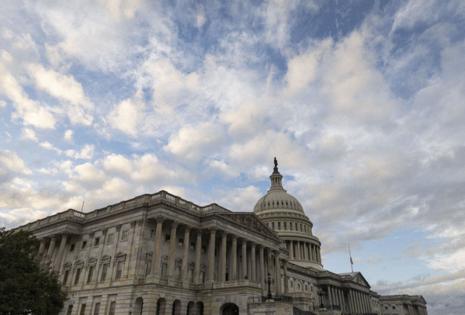Editorial: The tax changes in the US Senate are a mixed bag
Published in Op Eds
As is its right and duty, the U.S. Senate now has messed with the Trump administration’s “big, beautiful,” tax-and-spending bill that just squeaked through the House. Here’s our hot take on some of the Senate’s work in progress, as viewed not in terms of what is ideal but in the context of what the House already passed.
We’re all for limiting the “no-tax-on-tips” deduction to $25,000 per person. We didn’t like the campaign promise in the first place and its application to servers at fancy joints who make very good money is especially unfair on those employees who don’t receive tips.
Same deal with the smart idea to limit “no tax on overtime” to $12,500 (or $25,000 per couple). That’s not fair either, but it’s certainly better to make sure only lesser paid folks get the benefit. It’s more justifiable for servers at Denny’s than Alinea. And while plenty of seniors do not need a bigger $6,000 tax break (in lieu of President Donald Trump’s promises not to tax Social Security), that amount is pegged about right to make a difference in the lives of the people who need it without offering anything of life-changing significance to wealthier Americans. We suspect that will be expensive but can live with that.
And it made sense for the Senate version to limit another wacky Trump giveaway, no tax on car loans, to new vehicles. It limits the cost of the $10,000 tax break, helps workers in dealerships and factories, and gets more cars with advanced safety features and gas mileage on the road. It also will be harder to game than the House version, applicable to any car.
We’re all for a permanent modest increase in both the standard deduction and the child tax allowance (the Senate would make it $2,200), being as temporary increases with expiry dates invariably represent sleight of hand to our minds. We’re all for reducing the tax on university endowment income (to 8%); the House version, which went as high as 21%, was mere Trumpian punitiveness and would have harmed the sector immeasurably.
Arguably, the current 1.4% rate for endowments is too low, given the legitimate concerns about the expansion of the national debt. But we’d be happier if a more comprehensive look at all nonprofit tax breaks was taking place; there’s no reason to single out universities beyond ideology or revenge, neither of which should be part of tax policy. The Senate should consider that.
Regular readers know that we favor raising the cap imposed by Trump in the so-called SALT deduction, not least on the grounds of fairness, given that nobody should have to pay taxes twice on the same money earned. Property taxes have been rising in cities like Chicago, where many homeowners now pay more than $10,000 a year in property tax alone and some tax relief is only reasonable. In the House, the cap went to $40,000, albeit with income restrictions, but the Senate draft kills that increase. Trump’s initial actions were about punishing blue cities and he caught up too many middle-class Americans in his dragnet.
That needs to change and we’re confident a compromise can be found.
Finally, here’s something else to like in the Senate version. Sen. Thom Tillis, R-NC, has been pushing a plan to claw back revenue from the $15.2 billion litigation finance industry, wherein investors finance lawsuits in order to get a piece of any future award or settlement.
This can be a really nice ca-ching for investors, even in downtimes in other markets, but it is deeply problematic for cities like Chicago as it encourages lengthy lawsuits and also drives up the cost of settlements at taxpayer expense since the actual injured party inevitably gets less of the payout. Given the whole parking meter morass, we’ve had more than enough of Chicagoans’ hard-earned money landing in these kinds of hands.
We’re all for the Senate’s proposed 41% levy on litigation finance profits — if only because it should curtail this practice by making it less attractive.
_____
©2025 Chicago Tribune. Visit at chicagotribune.com. Distributed by Tribune Content Agency, LLC.

























































Comments